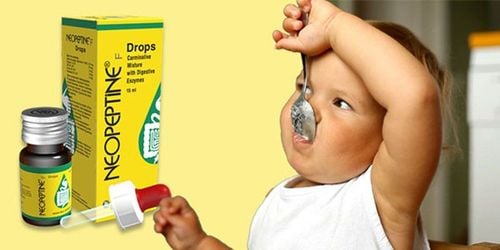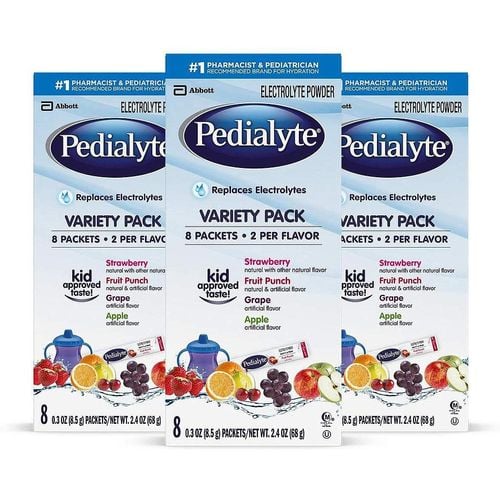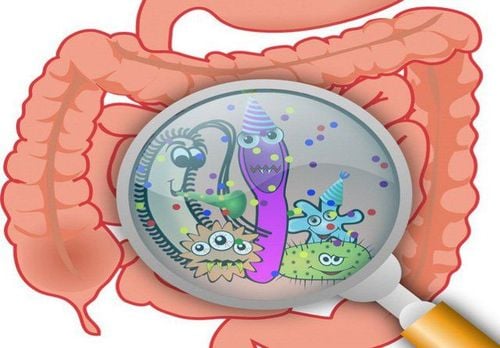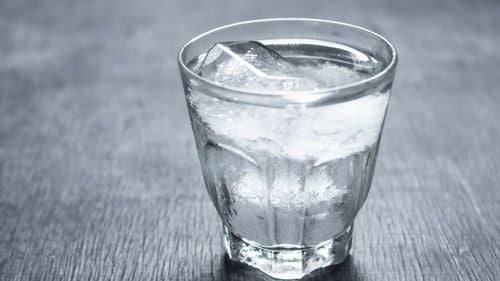This is an automatically translated article.
This article is professionally consulted by Resident Doctor of Pediatrics - Neonatology - Department of Pediatrics - Neonatology - Vinmec Hai Phong International General Hospital.
Acute diarrhea is the condition of passing stools many times a day (more than 3 times), watery stools. Acute diarrhea in children will cause stool changes such as: loose stools with a lot of water, stools containing viscous, stools with particles, strange colors (white, green, dark brown). The disease can also cause children to leak stools continuously.
Acute diarrhea can be transmitted through the digestive tract if eating food or drinking water containing viruses and bacteria that cause disease. Acute diarrhea is very contagious and breaks out into a large outbreak.
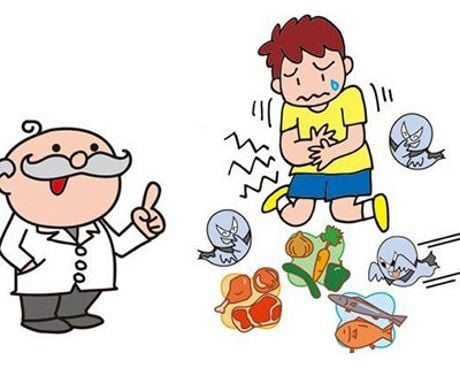
1. Common complications of acute diarrhea
According to the Pastuer Institute in Ho Chi Minh City, acute diarrhea can lead to complications such as:
Diarrhea, if not rehydrated in time and with enough water, causing severe dehydration, causing dehydration in children, causing cardiovascular collapse which can be fatal. Acute kidney failure can also be fatal. So it is necessary to give people with diarrhea to drink many times, especially after each bowel movement. Malnutrition due to children eating less during illness. As soon as the child has acute diarrhea, it is necessary to give the child a lot of water, eat a lot of fruit, drink oresol solution to rehydrate. Closely monitor the child's bowel movements including the number of bowel movements, the condition of the stools, the number of stools each time and the child's behavior. If the number of bowel movements is increasing, accompanied by the child not eating or drinking, dry lips, high fever, vomiting, pale face, weakness... it is necessary to take the child immediately to the hospital for examination and treatment to avoid these complications. dangerous complications.
2. Common mistakes when treating acute diarrhea
Mild diarrhea can be treated and monitored at home. However, there are many people who do not really understand the disease, so there are wrong treatment methods, making the disease worse and worse, especially acute diarrhea in children.
According to the Pastuer Institute in Ho Chi Minh City, what not to do when treating acute diarrhea in children include:
Do not give water to children for fear that they will have more diarrhea. Water does not make acute diarrhea worse. than. The cause of bowel movements is an irritable bowel and an increase in intestinal fluid, which has nothing to do with water intake. On the contrary, continuous defecation makes the body severely dehydrated, it is necessary to replenish water to avoid dehydration. Other organs and intestines that haven't been infected with disease-causing bacteria still need water and nutrients as usual to stay functioning.
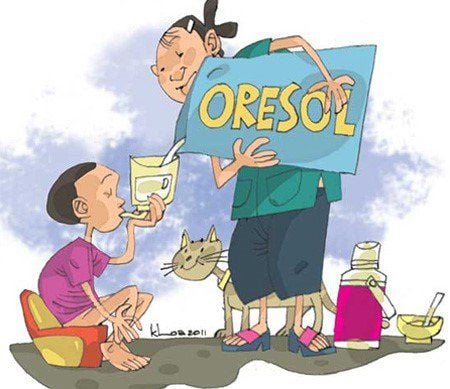
Letting children drink a lot of electrolytes, fruit juices, and eat lots of fruit will help them feel healthier and more comfortable.
Give children anti-diarrheal drugs Do not take anti-diarrheal drugs such as: Young guava juice, mangosteen peel decoction, anti-diarrheal drugs (Paregoric alcohol, Mangostana tablets, Imodium tablets) because it will cause accumulation. bacteria, viruses and toxins stay in the intestines.
This is one of the most common mistakes when treating acute diarrhea. Many parents voluntarily go to the pharmacy to buy anti-diarrheal medicines for their children to take. This is very dangerous.
Acute diarrhea is caused by intestinal infection with bacteria and viruses. Frequent bowel movements are the body's response to eliminate toxins and bacteria. Using anti-diarrheal drugs will interfere with the body's self-elimination process.
Moreover, anti-diarrheal drugs will reduce intestinal motility, making stools impossible to pass out. That is, the child actually has diarrhea but does not have a bowel movement to excrete feces. Stool accumulation in the intestines will cause abdominal pain, enteritis, intestinal obstruction, even death.
Do not use antibiotics if there is no fever or evidence of infection (mucus, blood) Do not give sick children food, drink or abstain from eating only salted porridge. Many parents fear that their children will not be able to digest it, so they give them a very careful diet, only eating salted porridge. This perception needs to change immediately. Doctors at the Ho Chi Minh City Pastuer Institute explained that "when the intestinal tract is infected with bacteria or toxins that cause diarrhea, the parts of the intestine that have not been damaged can still absorb water and nutrients as usual, so it is necessary to continue feeding the child. Eat as usual and drink more water to prevent dehydration and prevent malnutrition in sick children.”
In addition, you should not change the milk for the baby when you see that the child has diarrhea. Unless you see that your baby has diarrhea that gets worse after each meal due to intolerance to the lactose in milk. You need to change to lactose-free milk. Because milk is not the cause of illness. Children need to eat more when sick. If the milk is changed, it may cause the child to not get used to it and stop eating.
Above are common complications and common mistakes about acute diarrhea that you should pay attention to. During the course of treatment and monitoring at home, if there are any unusual phenomena, it is necessary to consult a medical staff or take the child immediately to the hospital for examination and treatment by doctors.
Please dial HOTLINE for more information or register for an appointment HERE. Download MyVinmec app to make appointments faster and to manage your bookings easily.
Reference source: Pasteur Institute HCM




